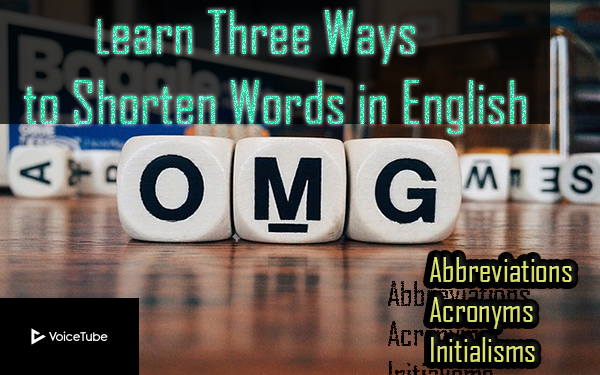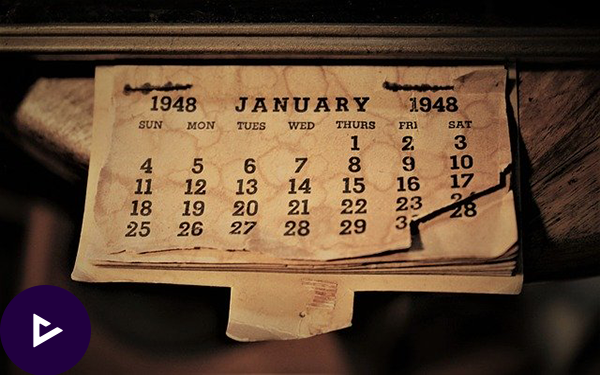Shoterning
Sergeichuk SL
Shortening is the process and the result of forming a word out of the initial elements (letters, morphemes) of a word combination
Shortening
To make a new word from a syllable (or two) of the original words. The latter may lose it’s beginning (telephone – phone, defence — fence), it’s ending (holidays – hols, advertisement- ad), or both the beginning and the ending (influenza – flu, refrigerator — fridge)
To make a new word from the initial letters of a word group:
U.N.O – United Nation Organization, B.B.C. and et c.
Types of Shortening
clipping
acronyms
blending
abbreviation
C l i p p i n g
is a type of word-building shortening of spoken words
m e d i a l clipping (or s y n c o p e , from Greek «syncope» a cutting up), e.g., fancy (fantasy), ma’am (madam) .
f i n a l clipping (or a p o c o p e , from Greek «apokoptein» — cut off), e.g., cap (captain), gym (gymnasium, gymnastics) , lab (laboratory), ed (editor ) ;
i n i t i a l clipping (or a p h e s i s , i.e. a p h e r e s i s , from Greek «aphairesis» — a taking away ), e.g., cap (captain), phone (telephone), story (history), chute (parachute ) ;
may be combined and result in the curtailed words with the middle part of the prototype retained, e.g., flu (influenza), frig (refrigerator), tec (detective )
structure of the prototype
shortened words correlated with w o r d s , e.g ., cabbie (cabman), nightie (nightdress), teeny (teenager) ;
shortened words correlated with p h r a s e s , e.g. , finals (final examinations), perm (permanent wave), pop (popular music), pub (public house), taxi (taximeter-cab ).
The process of formation is also called t e l e s c o p i n g , because the words seem to slide into one another like sections of a telescope . E.g., brunch (breakfast + lunch), smog (smoke + fog), smaze (smoke + haze), slimnastics (slim + gymnastics ) .
B l e n d i n g is a type of compounding by means of merging parts of words into new one word .
coining a new word from the initial elements of one word and the final elements of another, e.g. , drunch (drink + lunch), skort (skirt + short ) ;
combining the initial elements of one word with a notional word, e.g., mobus (motors + bus), legislady (legislative lady) .
coining a new word by combining one notional word arid the final element of another word, e.g., manglish (man + English), radiotrician (radio + electrician );
A b b r e v i a t i o n is a type of shortening when words are formed from the initial letters of each part of a phrasal term. Abbreviations are pronounced as a series of letters, i.e. the alphabetical reading of the letters is retained. E.g., B.B.C. (The British Broadcasting Corporation), M.P. (Member of Parliament), P.M. (Prime Minister), T.V. (Television), Y.C.L. (The Young Communist League ).
A specific type of abbreviations having no parallel in Ukrainian is represented by Latin abbreviations, which are not read as Latin words but substituted by their English equivalents , e.g., a.m. (ante meridium) – in the morning; p.m. (post meridiem) – in the afternoon;
Definition
Exampels
A c r o n y m s (from Greek «acros» end + «onym» name) are abbreviated words formed from the initial letters of word-combination; the abbreviated written form lends itself to be read as though, it were an ordinary English word and sounds like an English word.
NATO /neitou/ — The North Atlantic Treaty Organization, UNO /ju:nou/ — United Nations Organization, SALT /solt/ — Strategic Arms Limitation Talks, radar – radio detecting and ranging; laser – light amplification stimulated emission radio; maser – microwave amplification stimulated emission radio.
Christian names in acronyms:
Fred – fast reading electric device;
Oscar – orbiting satellite;
Eva – electronic velocity analyzer.
Shortening
is the process of substracting phonemes and / or morhemes from words
and word-groups without changing their lexico-grammatical meaning.
Abbreviation
is
a process of shortening the result of which is a word made up of the
initial letters or syllables of the components of a word-group or a
compound word.
Graphical
abbreviation is
the result of shortening of a word or a word-group only
in written speech
(for the economy of space and effort in writing), while orally the
corresponding full form is used:
days
of the week and months, e.g. Sun.,
Tue., Feb., Oct., Dec.;
states
in the USA, e.g. Alas.,
CA, TX;
forms
of address, e.g. Mr.,
Mrs., Dr.;
scientific
degrees, e.g. BA,
BSc., MA, MSc., MBA, PhD.;
military
ranks, e.g. Col.;
units
of measurement, e.g. sec.,
ft, km.
Latin
abbreviations, e.g. p.a.,
i.e., ibid., a.m., cp., viz.
internet
abbreviations, e.g. BTW,
FYI, TIA, AFAIK, TWIMC,
MWA.
Lexical
abbreviation
is the result of shortening of a word or a word-group both
in written and oral speech.
—alphabetical
abbreviation (initialism)
is a shortening which is read as a succession of the alphabetical
readings of the constituent letters, e.g. BBC (British Broadcasting
Corporation), MTV (Music Television), EU (European Union), MP (Member
of Parliament), WHO (World Health Organisation), AIDS (Acquired
Immune Deficiency Syndrome), GMO (Genetically Modified Organisms)
etc.;
—acronymic
abbreviation (acronym)
is a shortening which is read as a succession of the sounds denoted
by the constituent letters, i.e. as if they were an ordinary word,
e.g. UNESCO (United Nations Scientific, and Cultural Organisation),
NATO (North Atlantic Treaty Organisation), UNICEF (United Nations
International Children’s Emergency Fund) etc.;
—anacronym
is an acronym which is longer perceived by speakers as a shortening:
very few people remember what each letter stands for, e.g. laser
(light amplification by stimulated emission of radiation), radar
(radio detecting and ranging), scuba (self-contained underwater
breathing apparatus), yuppie (young urban professional).
—homoacronym
is an acronym which coincides with an English word semantically
connected with the thing, person or phenomenon, e.g. PAWS (Public for
Animal Welfare Society), NOW (National Organisation for Women), ASH
(Action on Smoking and Health) etc.;
Clipping
is
the process of cutting off one or several syllables of a word.
apocope
(back-clipping)
is a final clipping, e.g. prof
< professor, disco
< discotheque, ad
< advertisement, coke
< coca-cola;
aphaeresis
(fore-clipping)
is an initial clipping, e.g. phone
< telephone, Bella
< Isabella, cello
< violoncello;
syncope
is a medial clipping, e.g. maths
< mathematics, specs
< spectacles; ma’m
< madam;
fore-and-aft
clipping
is an initial and final clipping, e.g. flu
< influenza, fridge
< refrigerator, tec
< detective, Liza
< Elizabeth;
Blending
(telescoping)
is
the process of merging parts of words into one new word, e.g.
Bollywood
< Bombay
+ Hollywood,
antiégé
< anti
+ protégé, brunch < breakfast + lunch, Mathlete <
Mathematics+ athlete.
A
blend
(a
fusion, a telescoped word, a portmanteau word) is a word that
combines parts of two words and includes the letters or / and sounds
they may have in common as a connecting element.
Blending
has been known since the 15th c. First blends were of comic or
mysterious nature as these were charades for readers or listeners to
decode. Telescoped words are found in the works by W. Shakespeare
(trimpherate
< triumph+
triumvirate),
E. Spencer (wrizzle
< wrinkle + frizzle).
The term portmanteau
word was
coined by Lewis Carroll in Through
the Looking-Glass
in 1872 to explain some of the words he made up in the nonsense poem
Jabberwocky,
e.g. galumph
< gallop
+ triumph,
chortle
< chuckle
+ snort.
Blending+semantic
derivation
camouflanguage
< camouflage + language “мова,
перенасичена лінгвістичними та
мовленнєвими засобами, які допомагають
мовцеві сховати справжній зміст
повідомлення”
Thematic
groups of blends:
information
technologies:
teleputer
< television + computer; webcam
< web + camera; netaholic
< Internet + alcoholic;
economics:
ecolonomics
< ecology + economics; freeconomics
< free + economics; slowflation
< slow + inflation;
geography:
Eurabia
< Europe + Arabia; Chindia
< China + India; Calexico
< California + Mexico;
literature
and art: dramedy
< drama + comedy; fictomercial
< fiction + commercial; docusoap
< documentary + soap-opera;
linguistics:
Spanglish
< Spanish + English; Hindlish
< Hindi + English; cryptolect
<
cryptography + dialect; publilect
< puberty + dialect;
Соседние файлы в предмете [НЕСОРТИРОВАННОЕ]
- #
- #
- #
- #
- #
- #
- #
- #
- #
- #
- #
Want to become better at reading and writing English?
What’s the difference between abbreviations, acronyms, and initialisms?
Learn how to shorten words to improve your English writing
Introduction
We love to shorten everything in English. This is especially true in an age where texting has become the preferred way to communicate with one another. In writing, there are three common methods we can use to shorten words: abbreviations(1), acronyms(2), and initialisms(3). This blog will give you all the information you need to be able to read, write, and differentiate between them.
Abbreviations
Let’s face it, writing long words can be a nuisance(4), especially when you’re in a rush or need to write the same word multiple times. This is where abbreviations come in. Chances are, you’ve already seen many of these abbreviations before, but here are some of the most common abbreviations you are likely to come across.
Days of the week: Mon., Tues., Wed., Thurs., Fri., Sat., Sun.
Months of the year: Jan., Feb., Aug., Sep., Oct., Nov., Dec.
Measurements: “cm” for centimeter, “mm” for millimeter, and “in” for inch.
Titles: “Mr.” for mister, “Ms.” for miss, and “Mrs.” for mistress.
Map Locations: “st.” for street, “Ave.” for avenue, “dr.” for drive, “blvd.” for boulevard and “ln.” for lane.
Here are a few common abbreviations found in writing that tend to confuse people.
i.e. stands for id est, which means, “in other words.”
Ex. I love to eat western food, i.e., pizza and cheeseburgers.
e.g. stands for “example given.”
Ex. Tonight, we will explore some popular areas in Taipei, e.g, Taipei 101, Longshan Temple, and Daan Park.
etc. stands for etcetera, which means, “and other things.”
Ex. She bought way too much stuff at the department store. She walked out with shoes, a hat, pants, and a new blouse, etc.
One thing to note about abbreviations is that they are informal. Most of the time, they shouldn’t be used in academic, professional, or formal writing. Before you use these, just assess(5) whether or not abbreviations are appropriate for what you are writing, i.e. save them for your texts or personal notes rather than your Master’s thesis or C.V.
Acronyms
People often confuse initialisms—which we will cover soon—and abbreviations for acronyms. Some dictionaries are making exceptions since so many people misuse these terms, but as far as acronyms go, they need to spell out another longer word or phrase while making a new word ( they often shorten the lengthy names of certain organizations).
Exam skills: 6 tips to help you with writing exams
One great example is NASA. You pronounce this word just as it’s spelled, and it was created to shorten the official name, National Aeronautics and Space Administration, a name that doesn’t quite roll off the tongue like NASA does. If the abbreviation doesn’t form a new word that is pronounced just as it’s written, it isn’t technically an acronym. Let’s look at some of the most common acronyms to better understand this concept.
scuba: self-contained underwater breathing apparatus
radar: radio detection and ranging
GIF: Graphics Interchange Format
AIDS: Acquired Immune Deficiency Program
TED (talk): tell me, explain to me, describe to me
CAPTCHA: Completely Automated Public Turing Test to tell Computers and Humans Apart
Yahoo: yet another hierarchical officious oracle
ZIP: Zone Improvement Plan
IKEA: Ingvar Kamprad Elmtaryd Agunnaryd
CD-ROM: Compact Disc Read-Only Memory
Initialisms
Some people will claim that initialisms are acronyms, but that is debatable(6). Words like NBA and VIP are initialisms: There is no way to pronounce the letters like a typical word, but we instead pronounce each letter sound separately.
There are some examples that can be classified as both acronyms or initialisms. Think about the word ASAP. You can pronounce this phonetically as one word or say each letter separately A-S-A-P.
There are tons of initialisms, but here are a handful of common examples that everyone can recognize.
IQ: intelligence quotient
lol: laugh out loud
UFO: unidentified flying object
RSVP: répondez s’il vous plaît (please respond)
TBA: to be announced
OMG: oh my god
ETA: estimated time of arrival
NBA – National Basketball Association
VIP: very important person
3D: three dimensional
I will leave it open whether initialisms are a subset of acronyms, but it’s better to understand the subtle differences between abbreviations, acronyms, and initialisms regardless.
Conclusion
Knowing how words are shortened in English text will make you a better reader and a more effective writer. Instead of getting hung up on definitions, learn what the most common abbreviations, acronyms, and initialisms mean, and you will be well on your way to better understanding how words in English get shortened in text and writing.
Vocabulary
1. abbreviation (n.)
Def. a short form of a word, etc.
Ex. The abbreviation for Monday is Mon.
2. acronym (n.)
Def. a word formed from the first letters of the words that make up the name of something.
Ex. The acronym for “Graphics Interchange Format” is GIF.
3. initialism (n.)
Def. a word formed from the first letters of the words that make up the name of something, with each letter pronounced separately
Ex. The initialism for “very important person” is VIP.
nuisance (n.)
4. Def. a thing, person or situation that is annoying or causes trouble or problems
Ex. Mosquitos are such a nuisance during the summer.
5. assess (v.)
Def. to make a judgement about the nature or quality of somebody/something
Ex. He assessed the hiking route, and it is just too dangerous to proceed until the snow melts.
6. debatable (adj.)
Def. not certain because people can have different ideas and opinions about the thing being discussed
Ex. Whether or not the Earth was created by the Big Bang is debatable.
Photos
Omg-oh-my-god-texting-social-media by Wokandapix
January-calendar-month-year-day by Amber_Avalona
Fractal-mandelbulb-3d-ufo-invasion by cpmacdonald
Sources
https://abbreviations.yourdictionary.com/articles/what-is-the-difference-between-an-abbreviation-and-an-acroynm.html
By Robby
If you are new here please read this first.
VOCAB – this is a short version of ‘vocabulary’ and while it’s not something you’ll be using on a very regular basis, it’s always good to know that you can say things like: “I want to build my English vocab” or “I just added another useful English phrase to my vocab!”
LIMO – short for ‘limousine’. Next time around when you see one, you can nudge your friend and tell him – “Hey man, look at that cool limo!”
CELEB – I’m pretty sure you knew this one, but I had to put it on the list to make it complete! It’s obviously short for ‘celebrity’ and I wouldn’t be surprised if 20 years down the line people wouldn’t remember the original word at all!
PIC – this is a very handy way of referring to a picture or a photograph. “Hold on a sec, I’ll take a pic and then we’re good to go!”
SEC – this is how you can shorten the word ‘second’. As a matter of fact, I used this word in the sample sentence above, and here’s a couple more sample phrases: “Wait a sec!” or “Be back in a sec!”
DECAF – this is a short version of ‘decaffeinated coffee’ and it will definitely come in handy when putting in an order in a coffee shop late in the evening – “I’d like a large decaf latte, please!”
DETOX – this is a popular word in terms of dieting, and it refers to detoxification whereby you get your body rid of all sorts of toxins. ‘A detox diet’, for example, is a diet consisting mostly of juices, fresh salads and veggies and helps you get much healthier within a matter of days!
VEGGIE – is a short for ‘vegetable’ and is used all the time when people talk about health and balanced nutrition – “I’m eating lots of fresh fruit and veggies, and I’m feeling simply amazing!”
CARBS – carbohydrates. To be honest with you, I think the word ‘carbs’ has become so popular in the food industry that we don’t even have to wait for 20 years before everyone forgets the original word ‘carbohydrates’.
BI’S – biceps. TRI’S – triceps. QUADS – quadriceps (front part of your upper legs) HAMS – hamstrings (back of your upper legs) PECS – pectorals (chest muscles). DELTS – deltoids (shoulders). ABS – abdominal muscles. This is how you refer to your different body parts when you’re in a gym, and not only! You can use these body part names whenever you mention the respective body parts in daily conversations, and you can rest assured that you’ll be understood.
REP – a quick way of referring to a ‘representative’. ‘Rep’ is widely used in all industries – sales rep, trade union rep – and if you’re a sales rep, for example, you may want to start calling yourself a ‘sales rep’ rather than ‘sales representative’.
REP – another meaning of this word is ‘repetition’. If you’re serious into fitness and exercising, you’ll definitely know this one because it’s become an industry standard. You go to gym, pick up a workout program and start performing sets or reps according to your level and preparation.
PREP – now, guess what this short form of a word means? Well – it means ‘prepare’ or ‘preparation’! Typical phrases to learn – “Have you prepped up?” or “I’m all prepped up, we’re good to go!”
LINO – maybe this one is going to sound too technical, but believe me – there are times when you have to describe floor types such as carpet, wooden floor and also linoleum which is the full word for ‘lino’. A typical situation would be renting a house, so you’d better add this word onto your active vocab!
RADS – radiators. This is another DIY term for you, and believe me – your home heating is another one of those things that will come up during your house hunting efforts! “Are these rads old or new?” – you should ask this question when you’re in doubt of the effectiveness of the heating elements if they’re really worn and old-looking.
DOC – this is a how you refer to a ‘doctor’. “I have to visit my doc today, can I have a couple of hours off?” would be the ideal way of asking for some time off at your work so that you can visit a doctor. “Hello doc, nice to see you, how are you?” this is how you’d greet your doctor upon arrival.
MEDS – ‘medications’. “Please don’t forget to take your meds in the morning!” or “Have you taken your meds today?” would be a typical way of making sure your friend, child or a sibling has taken proper care of themselves according to their doc’s recommendations!
CERT – this is a shortened form of ‘certificate’, and you’ll definitely get to use this word when going through the educational system or when attaining new qualifications for your professional life.
PRO – this is a very popular shortening of a word, and it’s quite self-explanatory. It means ‘professional’, and you can simply stick this three letter word in front of other words to indicate professional level of the trade, profession and occupation in question: pro-designer, pro-builder, pro-bodybuilder.
CONGRATS – this word is also very self-explanatory; it basically means ‘congratulations’ and can be used whenever you’re congratulating someone with some sort of an achievement. “Congrats on your promotion, well done my friend!”
VID – short for ‘video’. Typical phrases – “Check out this vid!” or “Can you e-mail me a link to that crazy vid you showed me last week?”
INFO – well, well, well, I’m a real smart-arse, am I not? Of course you knew that ‘info’ is short for ‘information’! I just had to put this word on the list though because word shortening related info wouldn’t be complete without the word ‘info’!
SIS – this is how you can call your little sister. Well, you can still call her “sis” even if she’s older than you, it’s really up to you!
BRO – and this is how you call your brother, and not only your birth-brother. Any close friend of yours deserves being referred to as “bro”, and here’s how you can greet your best friend on the way to college “Hey bro, wassup?”
MIL – is a short for ‘million’, and here’s the most commonly used phrase containing this word: “Thanks a mil!” It’s a fairly common way of thanking someone for a small favor or service, and you’ll sound so much more native-like if you start using this phrase yourself!
SYNC – this English word shortening stands for ‘synchronize’ or ‘synchronization’. “Let’s sync our watches!” – would be something you’d hear in films where a group of agents are splitting up before the operation.
PROBS – “No probs!” obviously means “No problems!” and it’s a typical way you would respond to some request. “Can you please lift this bag up onto that shelf, please?” would be best met with the following response: “No probs!”
Robby 😉
P.S. Would you like to find out why I’m highlighting some of the text in red? Read this article and you’ll learn why it’s so important to learn idiomatic expressions and how it will help you to improve your spoken English!
P.S.S. Are you serious about your spoken English improvement? Check out my English Harmony System HERE!
P.S. Are you serious about your spoken English improvement? Check out the English Harmony System HERE!
ex.
package —> pkg
theorem —> thm
proof —> pf
function —> fn
config —> cfg (this is a bit uncommon)
attribute —> attr
Example sentence:
This process is called _____.
k1eran
22.4k6 gold badges50 silver badges89 bronze badges
asked Jun 4, 2018 at 14:37
8
They are called abbreviations:
abbreviation:
a shortened or contracted form of a word or phrase, used to represent the whole, as Dr. for Doctor, U.S. for United States, lb. for pound.
(Dictionary.com)
answered Jun 4, 2018 at 15:16
user 66974user 66974
64.9k22 gold badges173 silver badges297 bronze badges
Those words are foreshortened, e.g.
Morse code abbreviations are used to speed up Morse communications by foreshortening textual words and phrases. Morse abbreviations are short forms representing normal textual words and phrases formed from some (fewer) characters borrowed from the words or phrases being abbreviated. […]
e.g. ctl for control
— https://en.m.wikipedia.org/wiki/Morse_code_abbreviations
And the definition from Princeton’s WordNet:
foreshortened.
abridge, foreshorten, abbreviate, shorten, cut, contract, reduce(verb)
reduce in scope while retaining essential elements
«The manuscript must be shortened»
— https://www.definitions.net/definition/foreshorten
answered Jun 6, 2018 at 0:58
k1erank1eran
22.4k6 gold badges50 silver badges89 bronze badges
They’re also called acronyms when the first letters are used, such as GOP (Grand Old Party)! I was looking for this too because I always forget the word!
answered Feb 12 at 18:04
Shorthand or stenography is a style of writing / note taking that abbreviates words, and furthermore uses fewer strokes than usual to write the letters in the words.
answered Jun 5, 2018 at 2:30
JasperJasper
9716 silver badges14 bronze badges
In some languages, this form of writing is the only form of writing. For example, ancient Hebrew’s consonants were written down, and the vowels needed to be determined from context.
answered Jun 5, 2018 at 2:35
JasperJasper
9716 silver badges14 bronze badges
1
















